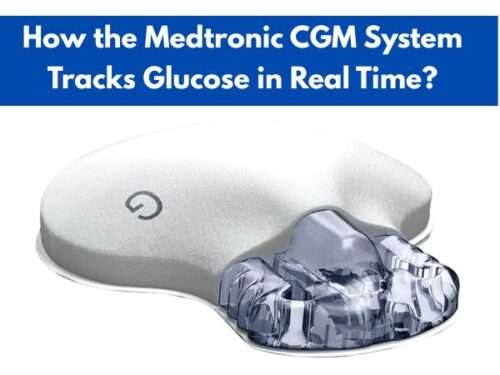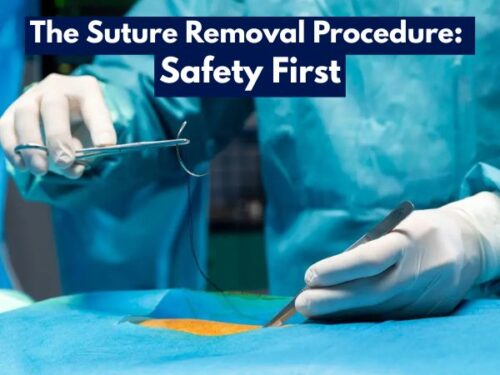Understanding Pregnancy Tests: Types, Accuracy, and How They Work
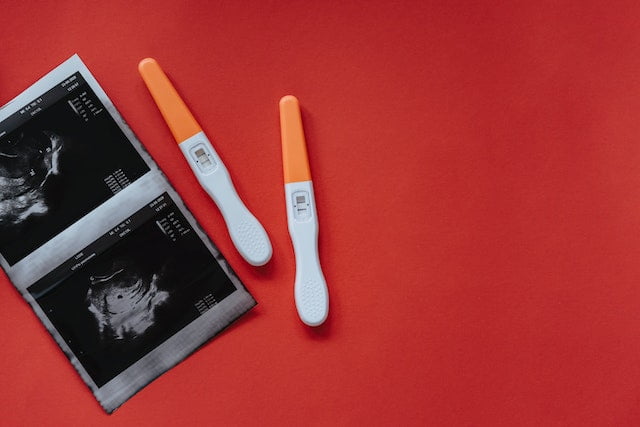
In case of a missed period, taking a pregnancy test is the first thing that comes to mind. Being a basic human right, pregnancy tests should be accessible and affordable for everyone. In this regard, both home-based as well as lab-based tests are available to confirm or rule out a pregnancy.
However, to conduct a pregnancy test, one must be clear about the method to take it followed by a basic understanding of the result analysis. With the aim of easing this process, this article summarizes the types of pregnancy tests that are available today and compares them on a scale of accuracy.

Pregnancy test strips
Types of pregnancy tests
There are generally two categories of pregnancy tests based on the sample required to conduct them:
- Urine test
- Blood test (Quantitative and qualitative)
Let us understand how both of these are conducted:
Urine test for pregnancy
To conduct a urine test, the following steps should be followed:
- The urine sample of the female subject is collected in a container.
- A few drops of urine are dropped on the test strip or the strip is dipped into the urine container. One can also hold the strip under the urine stream.
- Results are indicated within 1 to 2 minutes in any of the following ways:
- Color change
- Appearance of a symbol i.e. plus or minus
- A modification in a marked line
- An answer such as ‘pregnant’ or ‘not pregnant’
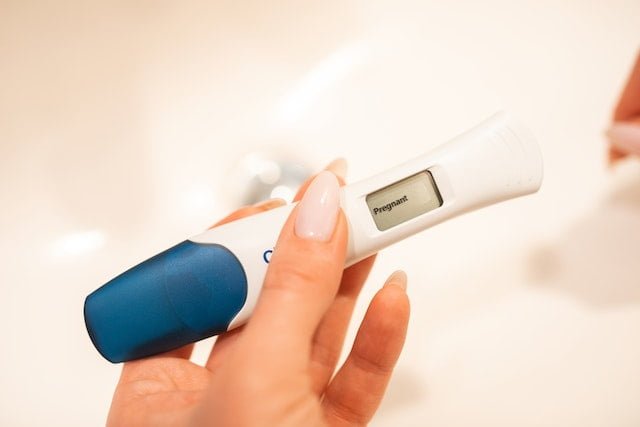
A pregnancy test strip indicating a positive result
Accuracy of urine test for pregnancy
A urine test can be conducted at home and does not require the services of a healthcare professional. Although the test is a good option to detect pregnancy, it can give false results. Therefore, in case of a positive urine test, one must also go for a blood test for confirmation.
Blood test for pregnancy
During blood tests, the HCG levels in the blood sample are detected or measured based on the type of test. In qualitative tests, the presence or absence of HCG hormone in the blood is detected.
However, in the quantitative one, its exact concentration is measured. The test is conducted only by a healthcare professional who draws the required amount of blood sample from the subject and runs chemical tests for the identification of HCG hormone. You might have to wait for a few days to get the test results.
Accuracy of blood test for pregnancy
Despite being expensive, blood tests are far more accurate than urine tests as these can detect even minute concentrations of HCG.
How does a pregnancy test work?
Pregnancy tests work by estimating the amount of human chorionic gonadotropin, abbreviated as HCG, a hormone that elevates in concentration in a pregnant woman. This HCG hormone is produced by the cells of the placenta which is the layer connecting the fetus to the mother’s body.
As the placenta is only formed during pregnancy, an increase in HCG concentration is often related to it, thus the name pregnancy hormone. The hormone is detectable in the mother’s blood and urine 10 to 15 days after she conceives.
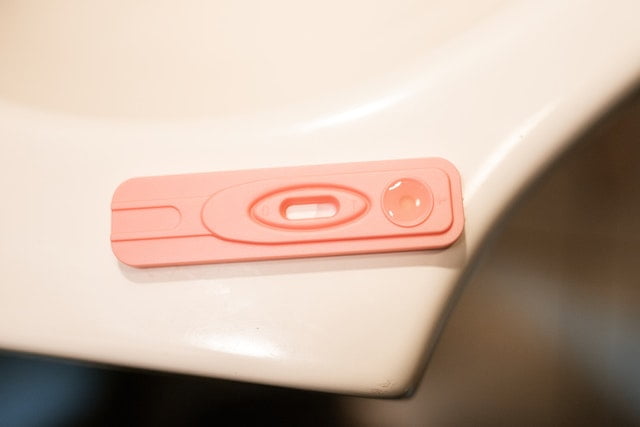
Pregnancy test strip
Comparison of urine and blood test for pregnancy
The following table gives a comprehensive comparison of different types of urine tests:
| Parameters | Urine test | Blood tests | |
| Qualitative blood test | Quantitative blood test | ||
| Sample | Urine | Blood | Blood |
| Working principle | Detection of HCG | Detection of HCG | Quantification of HCG |
| Detection of pregnancy | After 10 to 15 days of ovulation | The first week of pregnancy | The first week of pregnancy |
| Time to give results | 1 to 2 min | A few days | A few days |
| Accuracy | 99% | >99% | >99% |
| Test conducted | At home | At medical facility | At medical facility |
| Cost | Low | High | High |
FAQs
Following are some of the frequently asked questions regarding pregnancy tests:
When should pregnancy tests be taken?
A pregnancy test should be taken on the first day of your missed period. It is advised to take the test right after waking up as your urine will be more concentrated at that time.
From where can I buy a pregnancy test kit?
A pregnancy test kit is a non-prescription item which means you don’t have to ask a healthcare professional to prescribe it to you. You can easily buy these kits from any drugstore near you. As multiple brands manufacture pregnancy test kits, their prices may vary so you can choose one which fits your budget.
What if my pregnancy test result is positive?
If you get a positive result after taking a home-based pregnancy test, it is advised to contact your physician to consult about future steps. Generally, it is better to go for a blood test as well to confirm your results as although it is rare, there is a possibility to get a false-positive result from a home-based test. Drugs such as hypnotics, anticonvulsants, as well as tranquilizers, along with fertility drugs, can give a false-positive result.
What if my pregnancy test result is negative?
In case of a negative test result, one must repeat the test with a gap of at least one week to confirm the results. As some drugs give a false-positive result, others can give a false-negative as well. Chemical moieties such as diuretics and antihistamines tend to render the test result false-negative. Therefore, it is best to take multiple tests.
Conclusion
Home-based pregnancy tests are a widely used option when it comes to evaluating possible zygote implantation after fertilization. Despite being highly accurate, these home-based tests cannot be fully trusted.
Thus, there is a need to take a blood test to confirm the initial results. All of these pregnancy tests work by detecting and quantifying the level of HCG hormone in the blood or urine sample of the subject.
Although these tests vary in accuracy and cost, it is good to take multiple tests to confirm whether you are pregnant or not.













